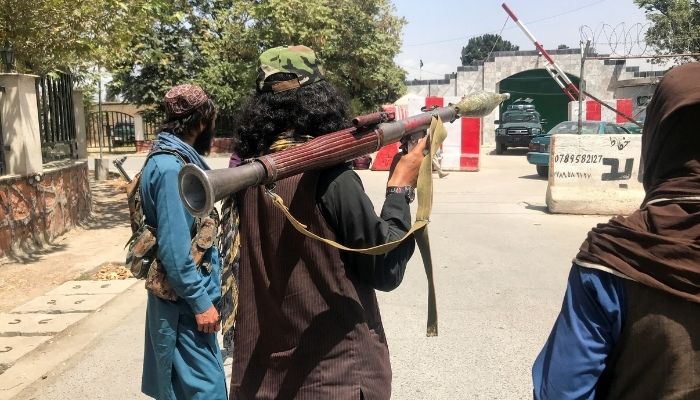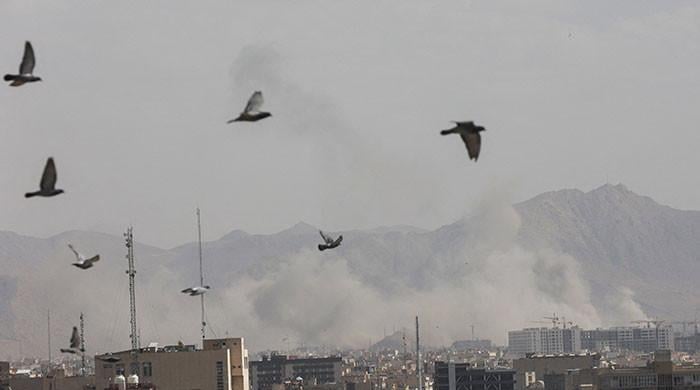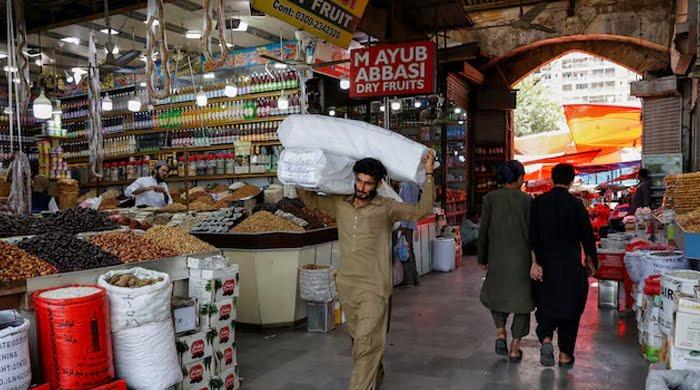TTP peace talks: Is everything else forgotten?
The seven-year period of TTP's heyday in Pakistan was one of the most difficult in the country’s history
June 01, 2022

Last week, many of us received a screenshot via WhatsApp, with a sense of shock, awe, and disgust. It was titled "Peace talks between TTP (Pakistani Taliban) and the Pakistani Govt." (sic). It contained eight points of negotiation between the two 'parties' – the mass murdering terrorists of the TTP and something purportedly resembling the government of Pakistan. Of the eight points, the screenshot claims that four points have been agreed upon and four are still in contention.
The very title gives away the source of the screenshot. It locates the terrorist group, the TTP, as the first group in the negotiation, and the "Pakistani Govt." as the second. The TTP is trying to gain an advantage in the ‘talks’ by leaking falsified accounts of the state of the ‘talks’ to generate public discourse to which it can point and claim wider, more generic support on Main Street in Pakistan. As Sting once crooned mockingly to Roxanne, "those days are over". But one can not blame the TTP for trying. This is a terrorist group that has enjoyed unprecedented and historic success. Let’s review.
The TTP enjoyed enormous influence in the Pakistani discourse from before it was formally founded, starting from the siege of Lal Masjid in July 2007 till December 16, 2014 – the day the TTP slaughtered 150 children and teachers at the Army Public School in Peshawar. In this period, it ruthlessly coerced, bullied, intimidated, killed, murdered, and destroyed all that stood in its path, using the innocence and naivete of its victims: the Pakistani people. It also became more than the sum of its parts, beginning as an umbrella for like-minded terrorist entities and growing into a rainbow coalition of sometimes ideologically very different terror groups. What united the TTP? The destruction of the Pakistani state and the enslavement of the Pakistani people.
That seven-year period of its heyday in Pakistan was one of the most difficult in the country’s history. It robbed tens of thousands of Pakistanis of their lives. It caused the martyrdom of thousands of policemen, soldiers, and spies. It destroyed the self-confidence of Pakistani elites, reducing them to a shadow of the confident, globetrotting military, feudal, and cultural aristocrats that once charmed the Americans, the Saudis, the Israelis, and everyone in between effortlessly. It divided Pakistanis bitterly and re-fueled a long-forgotten streak of aggressive majoritarianism among the Barelvis. Perhaps most importantly, Pakistan's terrorism and society's inability to deal with it helped expose many of the country's systemic flaws so brutally that the resulting politics, which started in Khyber Pakhtunkhwa and spread far beyond, helped bring about the PTI, the country's first third-party government since the country was split in 1971.
To get a sense of how epic and brutal the Pakistani military’s response to the threat of the TTP came to be eventually, there are two metrics we must understand. The first is that the TTP was resoundingly defeated on the battlefield so completely between June 2014 and the summer of 2016 that nearly all of its cadre had either been terminated or had fled the country into neighbouring Afghanistan. The second is that the TTP is not nearly the most talked about or most dangerous terrorist entity in the wider Afghanistan-Pakistan region any longer: that title now belongs to the dastardly Daesh.
Usually, once a terrorist group has been beaten and dismantled so comprehensively, it is never heard from again – at least not on the battlefield. So the fact that TTP terrorist ‘leaders’ are allegedly in a negotiation with Pakistan is, in and of itself, something worth exploring more. How did it regain consciousness? Who has nurtured it back to life? Where is the rugged experience and wisdom of military and intelligence officers that helped win Pakistan’s first war on terror? And instead of prosecuting a second war, why should there be any question of Pakistan compromising its hard-won dominance and sovereignty over a bunch of cavemen terrorists? What has changed so drastically in Pakistan since 2016 for things to have come dagger straight back into Pakistan’s chest?
Today’s Pakistani political chessboard is a product, in many ways, of the wounds and PTSD that were originally wrought on this country by the TTP. The resulting impact on post conflict public life in Pakistan has been something out of a dystopian novel. It was recently described brilliantly by lawyer Salahuddin Ahmed in the EOS section of Dawn in these words: "The highest constitutional functionaries sworn to preserve the Constitution brazenly defy it." The speaker of the National Assembly refuses to even count the votes of parliamentarians. The President of Pakistan refuses to follow the advice of the prime minister. Members of the Punjab Assembly thrash their speaker for daring to hold elections in compliance with court orders. The Governor of Punjab refuses to administer oaths to the chief minister-elect and his cabinet; leaving the largest province without a government. Polarisation has reached a level where rank and vile abuse masquerade as political critique. "Protests are held, not in public squares, but outside the homes of politicians (and their ex-wives), and even in the Masjid-i-Nabawi."
The current state of the institutions of Pakistan and the wider public discourse are brilliantly described by Mr Ahmed. But it is important to understand the link between public discourse and national institutions. Public discourse is what fuels institutions in the twenty-first century. When the public discourse approves with a green light to go ahead and do things, institutions like parliament, the judiciary and national security infrastructures (including the military) can go forth confidently, knowing the people have their back. Amber warning lights signal institutions and leaders to think carefully before doing things. Red lights beg leaders and their institutions to stop and not do things.
In 2016, the distrust between civilian and military leaders fell to levels not seen since 1998. Thanks to the legacy left behind by General Musharraf and sustained by General Ashfaq Pervez Kayani, questions about whether General Raheel Sharif would retire on time or whether he would seek or be given an extension corroded public discourse like sulfuric acid. Every minor issue becomes an ugly quarrel. Differences like footing the bill for welcoming Pakistanis that had been temporarily displaced from the tribal areas back to their homes became major and memorable sticking points. The so-called Dawn Leaks blew up a steadily building ecosystem of distrust.
By the end of 2016, Pakistan’s unique victory in the war on terror was barely a footnote in the national conversation – so too were delivery, schooling, roads, and even energy. Some of these issues had been solved, some seemed like they were on the path to being addressed. The nation’s attention focused instead on Panama Gate, civil-military differences, and the lack of patriotism in the PML-N, PPP, MQM, ANP, and pretty much everyone else. Imran Khan and the PTI were hot, new and exciting. The very machinery that had helped deliver a green light to go after and destroy the TTP had now been deployed by the military to take care of its long-standing problem of ‘corrupt politicians’.
The 2018 election was a culmination of a nearly three-decade-long quest to find a better, more erudite, less corrupt, and more popular Pakistani leader. Field Marshal Ayub Khan's love for Zulfikar Ali Bhutto and General Ziaul Haq's love for Nawaz Sharif don't seem to be part of the NDU's curriculum. Neither does the humiliation at Kargil or the pride of beating the TTP.
And so here we are. Unnamed military and intelligence officials are engaged in a negotiation that the TTP claims includes the reversal of the 25th Amendment—a project that took over 70 years to actualize. The PML-N was in power in Islamabad and the PTI in Peshawar, when Fata was merged into Khyber Pakhtunkhwa. Amazingly, informal denials by military officials keep accumulating, and yet the TTP – in a throwback to the 2007-2014 era – keeps getting to set the national agenda. The PML-N and PTI? Silence.
If Pakistan isn’t careful, groups like the TTP will take control of the green, amber, and red lights in our public discourse. We will all pretend it was corrupt and incompetent politicians that brought us to our knees. We all know better.
The writer is an analyst and commentator.
Originally published in The News











